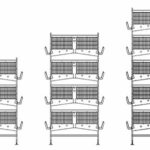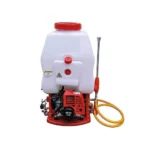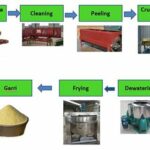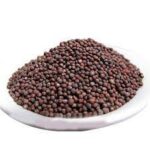The outbreak of the novel coronavirus disease (COVID-19) is raising a lot of concerns and questions in the minds of people all over the world. The pandemic, which is now a national challenge, seems to pose a threat not just to human health but also to a wide range of businesses as well as the entire economy.
To combat this situation as a farmer, it is important to be well informed on the COVID-19 disease. This is vital to protect ourselves and others from being infected and also keep our business by following the right measures in our farming operations.
What is COVID-19?
According to the WHO, “Coronavirus disease (COVID-19) is an infectious disease caused by a newly discovered coronavirus”. This virus was first identified in Wuhan, China. Coronavirus causes respiratory illness in people.
How the COVID-19 Virus Spreads
Just like the flu or cold, the human coronaviruses spread from human to human through;
- The air by coughing or sneezing;
- Close personal contact, such as touching or shaking hands;
- Touching an object or surface with the virus on it.

However, there are other routes (though not the main feature of the current outbreak) of catching COVID-19 through which people may get infected with these viruses and then spread them to other people. This includes;
- The faeces of an infected person: The risk appears to be low, though initial investigations suggest the virus may be present in faeces in some cases.
- Animal source: Coronaviruses are a large family of viruses that are common in animals, though possible animal sources of COVID-19 have not yet been confirmed.
- Pets: There is no evidence that a dog, cat or any pet can transmit COVID-19.
However, the WHO is assessing ongoing research on the ways COVID-19 is spread and will continue to share new findings.
What are the Symptoms of COVID-19?
Although the COVID-19 virus affects different people in different ways, Common symptoms include:
- Fever
- Tiredness
- Dry cough.

Other symptoms include:
- Shortness of breath
- Aches and pains
- Sore throat
- Diarrhoea, nausea or a runny nose.
The symptoms may appear between 2-14 days after exposure. It is important that people with any of the above symptoms should seek medical attention.
While most people will recover without special treatment, few people who are aged and those with underlying medical conditions have a higher risk of developing severe disease and death.
Preventive Measures for COVID-19

To prevent infection and to slow down the transmission of COVID-19, WHO has recommended the following preventive measures;
- Wash your hands regularly with soap and water, or clean them with alcohol-based hand rub.
- Maintain at least 1-metre distance between you and people coughing or sneezing.
- Avoid touching your face with unwashed hands.
- Cover your mouth and nose when coughing or sneezing.
- Stay home if you feel unwell.
- Refrain from smoking and other activities that weaken the lungs.
- Practice physical distancing by avoiding unnecessary travel and stay away from large groups of people.

Although the evaluation of potential treatment is ongoing, there are currently no specific vaccines or treatments for COVID.
In lieu of this situation, what do farmers need to be aware of and plan for?
COVID-19 and its Effects on Agriculture
With a kind of pandemic like the coronavirus disease, farmers will have to cope with movement restrictions and paralyzed supply chains. That is, the transport restrictions and quarantine measures are likely to impede farmer’s access to markets, curbing their productive capacities and hindering them from selling their produce.
In addition, farmers might be hindered from working on their land and buying seeds or other essential inputs. An example of this situation occurred in January when Chinese Poultry farmers reported that they were “very distressed” due to lack of access to feed inputs. And the shortages of labour could disrupt the production and processing of food, especially for crops that are highly labour-intensive.
Also, even though there is no evidence that livestock and poultry birds are at risk, the animal industries in some countries are being affected by consumer fears. This in a way affected the demand of animal and animal by-products.
Only time will reveal the severity of the impacts the novel coronavirus on agriculture, therefore it is important for farmers to take reasonable precautions to limit the spread of the disease and its influence on their businesses and lives.
Precautions for Farmers against COVID-19 Outbreak
In order to ensure food security during this period, it is important that farmers and farm input suppliers’ have a positive reaction to the outbreak of coronavirus. By putting the right protocols in place to ensure continuity of production while still protecting workers, farmers must pay attention to the following;

- Farm Workers’ Safety
Farmers are to adhere strictly to health measures both in and outside the farm. Hand washing is one of the best ways to prevent the spread of the virus. Make plenty of handwashing stations and/or containers of sanitizer available to your employees. Also, other protective equipment vital for operating a farm safely and keeping workers and animals healthy such as bleach, nose masks, hand gloves etc should be adequately supplied and positioned in barns, pens, offices and other locations on the farm.
2. Biosecurity on Farm
For crop and livestock farmers as well as those working with animal byproducts, basic disease prevention measures such as good nutrition, hygiene, ventilation and stringent biosecurity are highly relevant to avoiding the new viral diseases.
Farm Disinfectant and Germicide
Important measures for livestock farmers include:
- Wash hands thoroughly before and after coming into contact with animals
- Handle animal products such as raw meat, milk or animal organs with care to avoid contamination of uncooked foods and avoid consuming raw or undercooked animal products.
- Avoid coming in contact with sick animals (when possible) or spoiled byproducts;
- Isolate sick animals from healthy animals; and
- Avoid touching your eyes, nose and mouth with unclean hands
- Report any unusual mortality of animals to the animal health authorities.
This is crucial in following the Food and Agricultural Organization (FAO) urging that animal owners should treat their animals humanely, as misleading information may impact on their understanding of the possible risks posed by animals in the virus’s spread.
3.Plan for Your Farming Business
- Markets and farm prices: As consumers will be making different choices about food, there may be some disruptions in foodservice sales. This will likely have an impact on markets and prices.
- Supply chains shortages: If the virus were to spread more broadly, there could be issues with farm product delivery and input availability. Ensure you have sufficient feed, fuel, seeds, fertilizer, medication, equipment, and vaccines to last through this period to avoid disruption of farming operations. Also, the use of digital tools to purchase farm supplies is recommended to help reduce the risks of exposure to the virus.
- Remote Workers: Although most farming operations must be done in person as humans are still required to care for livestock and run equipment. Where possible, allow some employees could work remotely, simply to limit contact.
- Business Meetings and Visits: Limit the number of people coming into your farm. It is advisable to postpone meetings and unnecessary travel. Use alternatives like video conferences, phone calls or instant messaging.
Afrimash is sending free hand sanitizers with farm inputs
In conclusion, we advise that farmers are kept informed, listen to the experts, and follow the recommendations of government agencies and authorities while maintaining biosecurity, simple cleaning, and disinfection to help slow or stop the spread of COVID-19.














4 thoughts on “How Farmers Can Combat the Threat of COVID-19 Outbreak”
Thanks for this; very thoughtful of you to enlighten us.
The article is very insightful. Thank you once again.
Hello Jeremiah,
Thank you for your feedback. We are sincerely glad you found the article insightful.
Kindly subscribe to our newsletter to get updates on new blog post.
Also, Register now to join us in our upcoming online training session as we discuss “COVID-19: Biosecurity Measures to Take While Protecting Your Agribusiness”. Time is 6 pm on Wednesday, 8th April, 2020. It promises to be highly informative and educational.
Thank you for choosing Afrimash,
Warm Regards
Thanks for this article, easy to understand and very insightful.
Hello Faith,
Thank you for the feedback,
I am glad you found the post insightful
Have you checked out our website?
You can be a seller of farm input on afrimash.com and also be a seller of farm output on market.afrimash.com
Click the links to check special offers we have for you
We are excited to serve you at this period
Thank you for choosing Afrimash and keep staying safe